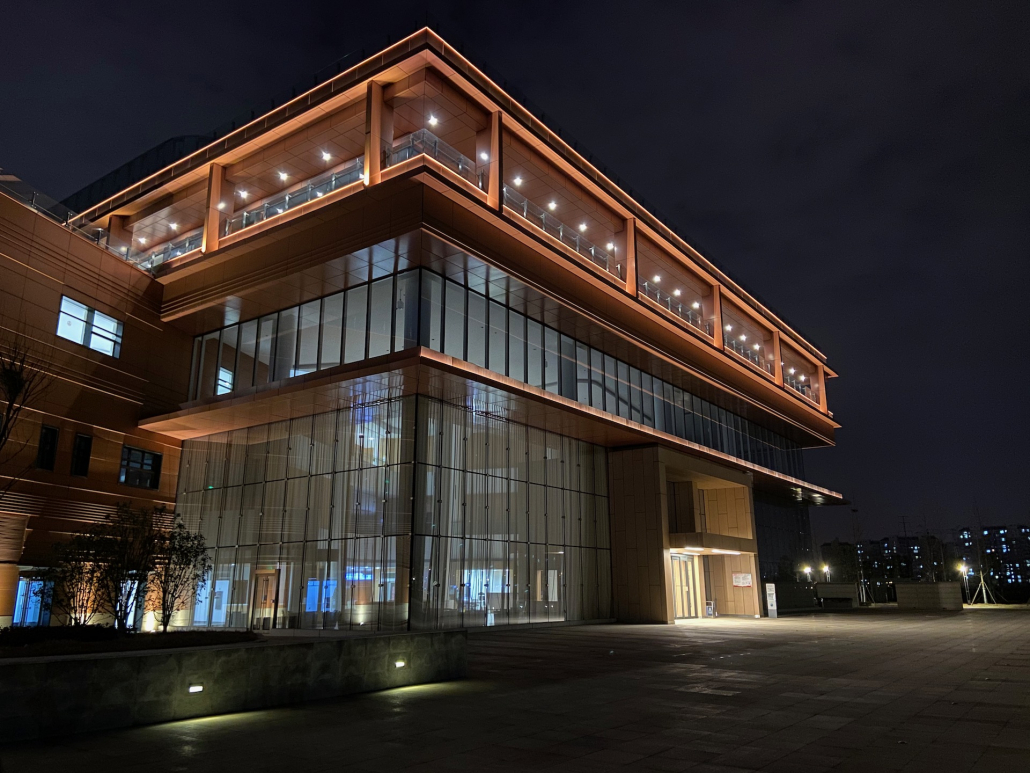
Need to be On-Site in China During a Pandemic? No Problem!
The past year has been very challenging for most of us for various reasons. COVID restrictions, working from home, parental responsibility, social isolation, you name it. For me, one of the most challenging aspects has been how mundane everyday life has become. Every day seems to be the same, and the time flies by, with nothing remarkable happening for weeks. That is why I jumped at the opportunity to spice it up with some business travel to China.
For the past year, I’ve been working as a Verification and Validation Engineer who makes sure that the software used in Proton Therapy (PT) machines performs according to the requirements before being released for clinical use. The testing is usually performed at the customer’s site. This time the customer was in Hefei, China.
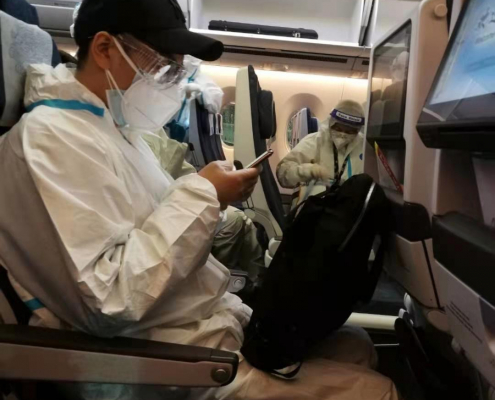
When they asked me if I was willing to travel, I did not hesitate. China has, after all, dealt with COVID-19 very well. I figured I would probably be safer there than at home. It turned out there’s a reason for that.
Before I even boarded a flight, I had to take two different coronavirus tests – PCR and antibody test by drawing blood. The results had to be submitted for verification to the Chinese Embassy. Based on that (and a whole bunch of questionnaires I had to fill out), I received a couple of QR codes that are checked before boarding the flight and are essentially your tickets to China.
Armed with 30 FFP2 and FFP3 masks, I confidently embarked on my adventure into the unknown, relying on the fact that there would be a straightforward process in place for handling travellers from abroad.
After arriving in Shanghai, all passengers were again given a PCR test and led to buses which took us to a mandatory 14-day quarantine in a government-designated hotel. Here things got a little complicated. The hotel clearly did not expect any foreign guests, so the staff didn’t speak any English. In addition, they wanted me to pay upfront for the whole 14 days. If you are not aware, in China, mobile payment is very prevalent. It turned out that during the pandemic, they moved even more aggressively in this direction, essentially limiting payment options only to mobile. As a foreigner without a Chinese mobile number, I had no chance even to set up a mobile payment. My saving grace was a coworker from Cosylab China, who answered my emergency phone call and spoke with the hotel manager.
My 14 days of quarantine were uneventful. The biggest excitement of each day was the food delivery. Two knocks on my door meant a new meal was waiting for me on a stool outside the door. The food was quite tasty, even though it was sometimes hard to identify what exactly I was putting in my mouth. Speaking of stools, there were some interesting rules in place regarding hygiene, like placing disinfection tablets into the toilet and waiting for an hour before flushing it.
The excitement of travel was soon gone, and I felt like I was back in a home office, only with a much crappier internet connection and no view of the outside. Apart from working, I spent my time reading, working out and playing computer games.
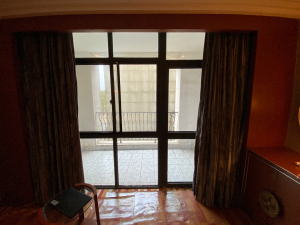
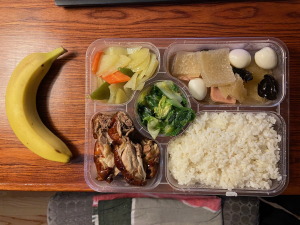
A couple of days before the end of my quarantine, it became clear I could not travel to Hefei just yet because the province imposed some additional restrictions. For this reason, I had to spend another week in the Shanghai province after the end of my quarantine. Since I was a free man in Shanghai, I relocated my home office to the 50th floor of a hotel in the city centre. I must say that the view from the room unquestionably improved my productivity. Or maybe it was the ability to finally go outside and walk around freely – I am not sure. 🙂
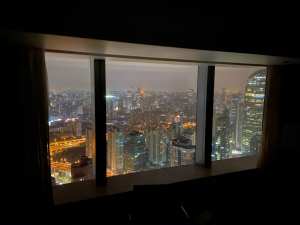
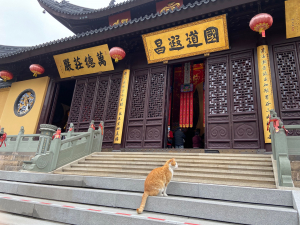
In Shanghai, I could experience everyday post-pandemic life in China. Everybody wore masks – even outside in the parks. The city centre in the evening was strangely empty, reminding me of Ljubljana during winter. It was probably due to six (yes, six) cases of COVID uncovered during my stay in the city. If I wanted to enter any public space, inside or outside, I had my body temperature measured, and I had to show a special green QR code tied to a phone number and the PCR tests taken in the last seven days. I think the tracking there is done differently than the Slovenian #OstaniZdrav app, requiring much more personal data. Considering how many forms I had to fill out at every step, I think, by now, my personal data must be in every Chinese database! In general, scanning a QR code is required for almost everything – reading a restaurant menu, visiting a tourist attraction, entering shopping malls… Even at the facility I was working at, I had to do it every single day. We joked that in China nowadays, not having a smartphone is treated the same as not wearing clothes. It is simply impossible to do anything. And you could probably compare not having a mobile data plan to not wearing any underwear – you still feel naked.
After 21 days of my home office being roughly 8500 km from my usual location in Slovenia, I could finally travel the last 470 km on the bullet train to Hefei and start the “real” work. It was my first time working in a functional treatment room, and it was a fascinating experience. The ten days I spent there went by really fast. It feels incredibly satisfying to put all the preparation from my home office into practice. I certainly feel more inspired and energized now that I am back home – especially considering I usually spend most of my time writing and reviewing documentation.
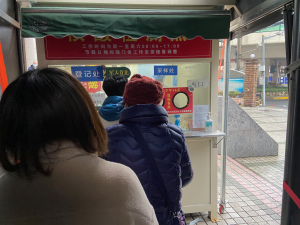
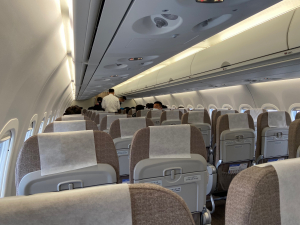
Travelling back home was comparatively very simple and uneventful, as the rules for travelling to Europe are much less strict. Looking back at my time in China, it was undoubtedly a unique experience. I’m sure I will never forget it, and it will one day make an excellent story for my grandchildren. And perhaps most importantly, I managed to stay healthy, and I did not get infected with any viruses. Although honestly, I don’t think they had the slightest chance, given the restrictions and measures I had to take during my travel.
I want to say a special thanks to my co-workers from Cosylab for their support with my travels. They were always thinking ahead and managed to stay on top of all the ever-changing restrictions and regulations. It felt great to be able to rely on such co-workers, and this made my travel so much easier. So thank you!
Leave a Reply
Feel free to contribute!
